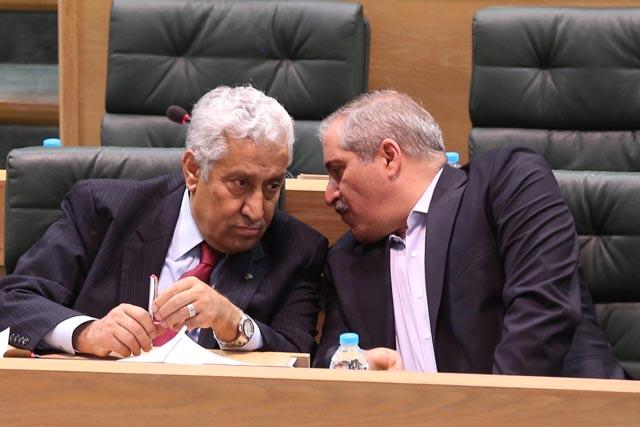You are here
No more one-vote election system — PM
By JT - Nov 23,2014 - Last updated at Nov 23,2014

AMMAN — The government will not present the Lower House with an elections law that adopts the one-person, one-vote formula, Prime Minister Abdullah Ensour said on Sunday.
He made his remarks in a lecture he delivered at the Royal Jordanian National Defence College, the Jordan News Agency, Petra, reported.
Under the existing controversial law, on the basis of which the 2013 parliamentary elections were held, each voter is given two votes: one for a candidate at the district level and another for a closed proportional list that competes for 27 seats at the national level.
Critics refused to endorse that as a deviation from the notorious decades-old one-person, one-vote system that governed the election process since 1993.
Also on political reform, Ensour stressed the importance of decentralisation in giving governorates and their residents the chance to play a “genuine” role in the decision-making process, noting that each governorate will have two councils: local and executive.
He added that the governorates’ budget will be allocated by the central government and will be drafted according to priorities set by the two councils.
On the other hand, the premier noted that the government has conducted studies on the public sector, which is considered the largest in the world in terms of its ratio to population, accounting for 40 per cent compared with a world average of 15 per cent, according to Petra.
Related Articles
The one-person, one-vote electoral formula is totally absent in the new elections law the government has prepared, according to a senior official.
Twenty-seven political parties have agreed on the need to draft a new elections law that does not follow the one-person, one-vote formula and gives a greater role to political parties, Oraib Rantawi, director of Al Quds Centre for Political Studies, said on Saturday.
Prime Minister Abdullah Ensour on Tuesday said the government will refer the decentralisation and municipalities draft laws to Parliament “within the coming few days”.











